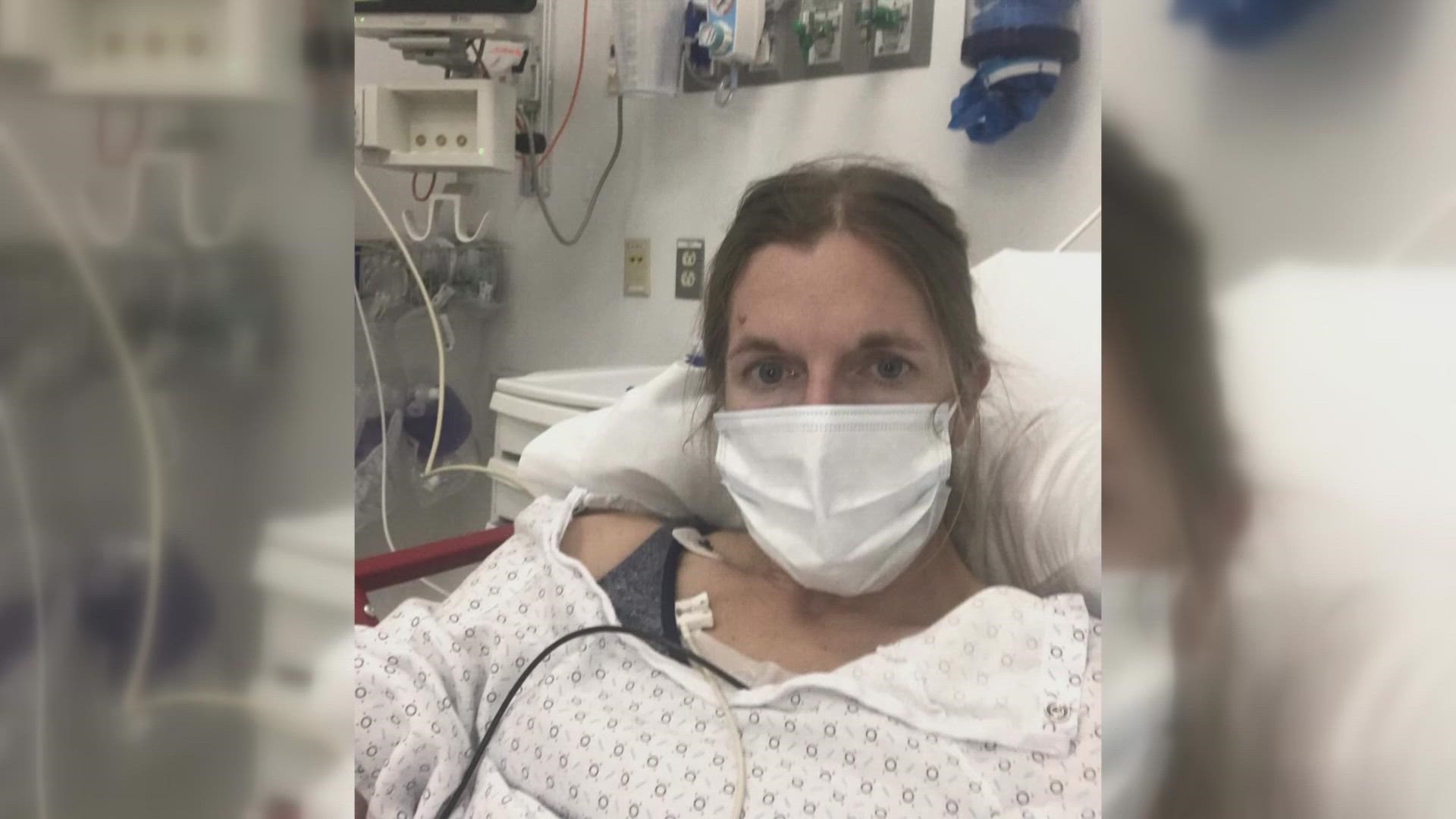KENNEBUNK, Maine — According to the American Heart Association, more than 100,000 people die from stroke each year in the U.S.
But in 20 to 40 percent of the cases, including younger patients, the cause of their stroke can be a mystery. That's what happened to a mother of three from Kennebunk.
It took more than two decades for Celina McMichael to find out she was suffering from recurring cryptogenic or unexplained strokes.
McMichael was living in North Carolina with her future husband Jason when strange things started happening to her body.
"I started to lose vision and the ability to talk as well," McMichael added.
She also lost feeling in her hand and lost her balance several times, but the symptoms went away shortly afterward. Just 19 at the time, she thought it was a migraine.
A month later, another episode but not as severe. She went to the hospital for a battery of tests including an MRI and a cat scan, which found a spot on her brain.
But everything else came back normal. McMichael, who had a very active lifestyle as an avid runner, had no more incidents until her 30s.
This time the tingling and numbness came back in her face, tongue, and hand.
"It really scared me because it was the exact same pattern that I had felt when I was 19," McMichael said.
Again, her vital signs came back normal. Then, another episode a few years later. She lost her speech in mid-sentence and the use of her hand. But again the symptoms eventually went away. Doctors only found a small hole in her heart, but they said it wasn't a recurrent risk factor for a stroke.
"I was told I had migraines, and I have also had doctors say anxiety," McMichael said.
Fast forward to just after her 40th birthday. The mother of three had a significant stroke and a turning point in her health. She completely lost control of both of her arms, experienced slurred speech, and the left side of her face began to droop. She was finally diagnosed with recurring cryptogenic strokes.
"Even with a very exhaustive search, we don't find a reason for stoke. In those patients, there are factors we don't yet know about," Dr. Jane Morris, a neurologist who specializes in treating strokes at Maine Medical Medical Center, explained.
She says in most instances, a stroke is caused by a clot that blocks blood flow to the brain. But in some cases, even with testing, there is no known cause. Morris said any sudden change of motor control, strength, loss of vision, and comprehension could be signs of a stroke.
"Anything you suddenly lose function of, that can be a sign of, but not necessarily a stroke. So get to the emergency department right away," Morris said.
Morris added that the risk to have a recurring cryptogenic stroke is five percent each year. She said it's also very common among young healthy patients not to seek medical attention after experiencing stroke symptoms. Research is underway to find more answers about the condition.
"There are studies in publications looking for ways to intervene in ways we didn't use to," Morris said.
Despite undergoing surgery to repair the hole in her heart, in 2021, McMichael did have another significant stroke on a snowboarding trip with her family. But she has fully recovered. She is taking aspirin and is on medication.
McMichael is putting her distance racing experience to work as a member of Tedy's Team, which will participate in next year's Boston Marathon. Tedy Bruschi, a former linebacker for the New England Patriots, suffered a stroke shortly after winning his third Super Bowl.
She has raised more than $4,700 to help the nonprofit increase stroke awareness, support survivors, and invest in treatment and research.
McMichael hopes her journey to getting the right diagnosis will help others not to delay getting treatment quickly.
"It's imperative that there is no delay," the runner said.
For more information on the signs and symptoms of a stroke from the U.S. Centers for Disease Control, click here.

